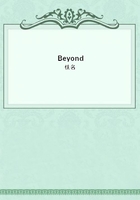
第3章
To this very room he had come back after hearing she was dead; this very room which he had refurnished to her taste, so that even now, with its satinwood chairs, little dainty Jacobean bureau, shaded old brass candelabra, divan, it still had an air exotic to bachelordom. There, on the table, had been a letter recalling him to his regiment, ordered on active service. If he had realized what he would go through before he had the chance of trying to lose his life out there, he would undoubtedly have taken that life, sitting in this very chair before the fire--the chair sacred to her and memory. He had not the luck he wished for in that little war--men who don't care whether they live or die seldom have. He secured nothing but distinction. When it was over, he went on, with a few more lines in his face, a few more wrinkles in his heart, soldiering, shooting tigers, pig-sticking, playing polo, riding to hounds harder than ever; giving nothing away to the world; winning steadily the curious, uneasy admiration that men feel for those who combine reckless daring with an ice-cool manner.
Since he was less of a talker even than most of his kind, and had never in his life talked of women, he did not gain the reputation of a woman-hater, though he so manifestly avoided them. After six years' service in India and Egypt, he lost his right hand in a charge against dervishes, and had, perforce, to retire, with the rank of major, aged thirty-four. For a long time he had hated the very thought of the child--his child, in giving birth to whom the woman he loved had died. Then came a curious change of feeling;and for three years before his return to England, he had been in the habit of sending home odds and ends picked up in the bazaars, to serve as toys. In return, he had received, twice annually at least, a letter from the man who thought himself Gyp's father.
These letters he read and answered. The squire was likable, and had been fond of HER; and though never once had it seemed possible to Winton to have acted otherwise than he did, he had all the time preserved a just and formal sense of the wrong he had done this man. He did not experience remorse, but he had always an irksome feeling as of a debt unpaid, mitigated by knowledge that no one had ever suspected, and discounted by memory of the awful torture he had endured to make sure against suspicion.
When, plus distinction and minus his hand, he was at last back in England, the squire had come to see him. The poor man was failing fast from Bright's disease. Winton entered again that house in Mount Street with an emotion, to stifle which required more courage than any cavalry charge. But one whose heart, as he would have put it, is "in the right place" does not indulge the quaverings of his nerves, and he faced those rooms where he had last seen her, faced that lonely little dinner with her husband, without sign of feeling. He did not see little Ghita, or Gyp, as she had nicknamed herself, for she was already in her bed; and it was a whole month before he brought himself to go there at an hour when he could see the child if he would. The fact is, he was afraid. What would the sight of this little creature stir in him? When Betty, the nurse, brought her in to see the soldier gentleman with "the leather hand," who had sent her those funny toys, she stood calmly staring with her large, deep-brown eyes. Being seven, her little brown-velvet frock barely reached the knees of her thin, brown-stockinged legs planted one just in front of the other, as might be the legs of a small brown bird; the oval of her gravely wondering face was warm cream colour without red in it, except that of the lips, which were neither full nor thin, and had a little tuck, the tiniest possible dimple at one corner. Her hair of warm dark brown had been specially brushed and tied with a narrow red ribbon back from her forehead, which was broad and rather low, and this added to her gravity. Her eyebrows were thin and dark and perfectly arched; her little nose was perfectly straight, her little chin in perfect balance between round and point. She stood and stared till Winton smiled. Then the gravity of her face broke, her lips parted, her eyes seemed to fly a little. And Winton's heart turned over within him--she was the very child of her that he had lost! And he said, in a voice that seemed to him to tremble:
"Well, Gyp?"
"Thank you for my toys; I like them."
He held out his hand, and she gravely put her small hand into it.
A sense of solace, as if some one had slipped a finger in and smoothed his heart, came over Winton. Gently, so as not to startle her, he raised her hand a little, bent, and kissed it. It may have been from his instant recognition that here was one as sensitive as child could be, or the way many soldiers acquire from dealing with their men--those simple, shrewd children--or some deeper instinctive sense of ownership between them; whatever it was, from that moment, Gyp conceived for him a rushing admiration, one of those headlong affections children will sometimes take for the most unlikely persons.